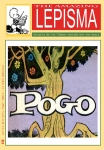Monday, March 21, 2005
Read. Digest. And Pass On.
iPod Therefore iAm
Ordinary people narrowcast; always have, always will. It's human nature to want to surround ourselves with like-minded people, familiar music, comfortable art, and unchallenging surroundings. Who can be surprised that our technology reflects this basic impulse?
Andrew Sullivan, that's who. In his recent essay, "iPod World: The End of Society?" Sullivan broods over the popularity of America's new favorite gizmo, the iPod:
"Americans are beginning to narrowcast their own lives. Technology has given us finally a universe entirely for ourselves -- where the serendipity of meeting a new stranger, or hearing a piece of music we would never choose for ourselves, or an opinion that might actually force us to change our mind about something are all effectively banished. Atomization by little white boxes and cell-phones. Society without the social. Others who are chosen -- not met at random.
"Human beings have never lived like this before."
On the contrary: human beings have always lived this way. Until very recently, most people lived their lives -- culturally and otherwise -- within the confines of small homes, small towns, and small places. Geography dictated your language, religion, political beliefs, cultural preferences, and artistic tastes. You didn't need a cell phone or an iPod or an Internet connection to link up with your tiny little subculture -- you just needed to get out of bed in the morning. To be sure, there was room for variety within geographical areas -- but for most of human history, location was destiny. Cultural jostling was largely restricted to merchants, soldiers, peripatetic clergymen, and perhaps the very rich. And while the constriction of cultural experience was hardly ennobling or intellectually fulfilling, it doesn't appear to have made most people miserable.
The history of the modern world is the history of culture transforming from a geographical phenomenon into an ideological phenomenon. As information technology has blossomed, ideas no longer rely upon locations for transmission. But while the unit of atomization in the bad old days was the small community, the unit of atomization in the present is the individual. Either way, the constant is atomization.
Human beings are parochial animals; in the modern age, we dwell in parishes of the mind. Sooner or later, one form of homogeneity replaces another. The old differences -- North vs. South, city vs. country, black vs. white -- give way to the new: Red America vs. Blue America, investor vs. consumer, new wave vs. old school. We select our style of narrowness, but the narrowness never changes.
And what's wrong with a little narrowcasting, anyway? Social life is a difficult thing -- fraught with awkwardness, quirky taboos, the fear of rejection, and the discomfort of confrontation. The unfamiliar and the unexpected can stimulate but they can also exasperate -- and exacerbate ill will. We surround ourselves with the familiar and unthreatening precisely because ordinary life is threatening enough, even within the confines of the familiar. To be sure, a select few will always strive to broaden their cultural horizons -- but then, a belief in the value of broadened cultural horizons is itself a cultural position, and a surprisingly comfortable one at that.
The question is not whether we will narrowcast our lives. The question is how to create a broadcast society out of narrowcast people.
Our true concern is not cocooning, but rather the intellectual indolence that it permits. It's fine to surround ourselves with the familiar and unobtrusive, provided that we use that comfort to create a mental space for reasoned, virtuous reflection. If every New York iPod zombie engaged his or her chosen style of music in a focused, intelligent way, we wouldn't mind the rise of the iPod a bit. But it seems likely that the familiarity of our favorite iPod tunes isn't making civilized thought easier -- it's allowing civilized thought to be avoided altogether. How many iPod-heads poison their brains with soulless pop drivel because it's the same crap to which they've always listened? As Christine Rosen warns in her New Atlantis article, "The Age of Egocasting:"
"TiVo is God's machine, the iPod plays our own personal symphonies, and each device brings with it its own series of individualized rituals. What we don't seem to realize is that ritual thoroughly personalized is no longer religion or art. It is fetish. And unlike religion and art, which encourage us to transcend our own experience, fetish urges us to return obsessively to the sounds and images of an arrested stage of development."
But fetish is an old enemy. Since time out of mind, most people stayed in the village because it was easier than venturing out into the city. Most people thoughtlessly accepted whatever music the cultural elites presented at the orchestral performances, or whatever art the smart-set displayed at the museums. Even today, most people accept the religion, culture, and mores of their upbringing without question. Do iPods encourage fetishes, or simply transform them?
Perhaps the new and the unfamiliar are just as likely to close the indifferent mind as to open it. Perhaps iPods are merely symbols of the insularity that characterizes the average intellect.
Sullivan identifies the real problem later in his essay:
"But what are we missing? That hilarious shard of an over-heard conversation that stays with you all day; the child whose chatter on the sidewalk takes you back to your own early memories; birdsong; weather; accents; the laughter of others; and those thoughts that come not by filling your head with selected diversion, but by allowing your mind to wander aimlessly through the regular background noise of human and mechanical life."
The iPod is a tool of choice. With it, we can download exactly the music that we choose, and play it when we choose, and where we choose. And ours is a nation swooning over the joys of choice. We learn the lesson over and over, in movies and TV shows and commercials: be yourself. Do what you want. Don't live by the rules and expectations of others. Pursue your own destiny. What we forget -- but what Sullivan remembers -- are the joys of not choosing. To accept what life offers, not numbly but deliberately, placing our beloved autonomy into abeyance, is to open the door to unforeseen surprises, happy coincidences, and profound affirmations. Good as it is to choose who we love, it is even more intoxicating to be chosen. Good as it is to seek out what we like, it is just as pleasant for what we like to seek us. And given our society's endless fascination with questions of identity, it seems that we are desperate to find those qualities of ourselves that are unchosen, unchanging, and fundamental. As our tools for choosing grow ever more powerful, our hunger for the unchosen can only increase.
I am not afraid of iPod nation. I am not so naïve as to think that good music will triumph over awful music. I am not so optimistic as to forget that we lose something vital when choice barricades the walls of our minds against the adventure of the unknown and unselected. And I accept that every iPod-like innovation tips the scales a little further in the direction of the chosen over the unchosen -- a dangerous trend in an era when choice always seems to win. But like everything else in modernity, iPods have increased our capacity to take pleasure in our unique pursuits, even as they have increased our responsibility to choose our pursuits wisely. Will we live up to that responsibility? Maybe so, maybe not; either way, the fault, dear Andrew, dear Christine, lies not within our iPods, but within ourselves.
As far as music goes, there are entire galaxies of music beyond planet Clear Channel. Do yourself a favor and sample some home grown antigravity by simply going left of your radio dial and tuning into your local college or NPR station. I like to refer to it as What's Left of The Dial.
Listen. Digest. And Pass On.
That's Right.
Thanks to Douglas Kern
Subscribe to:
Post Comments (Atom)




























































No comments:
Post a Comment